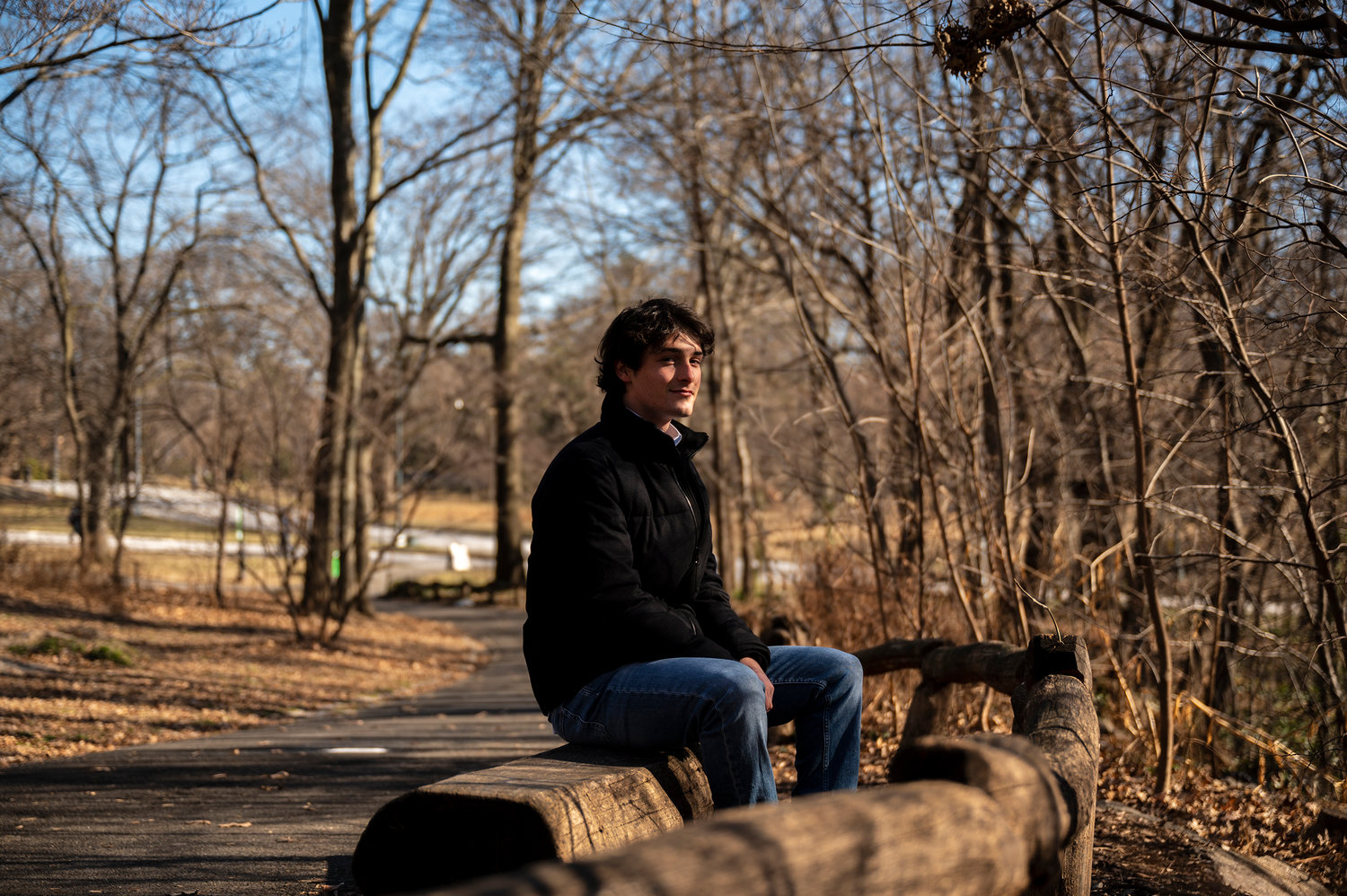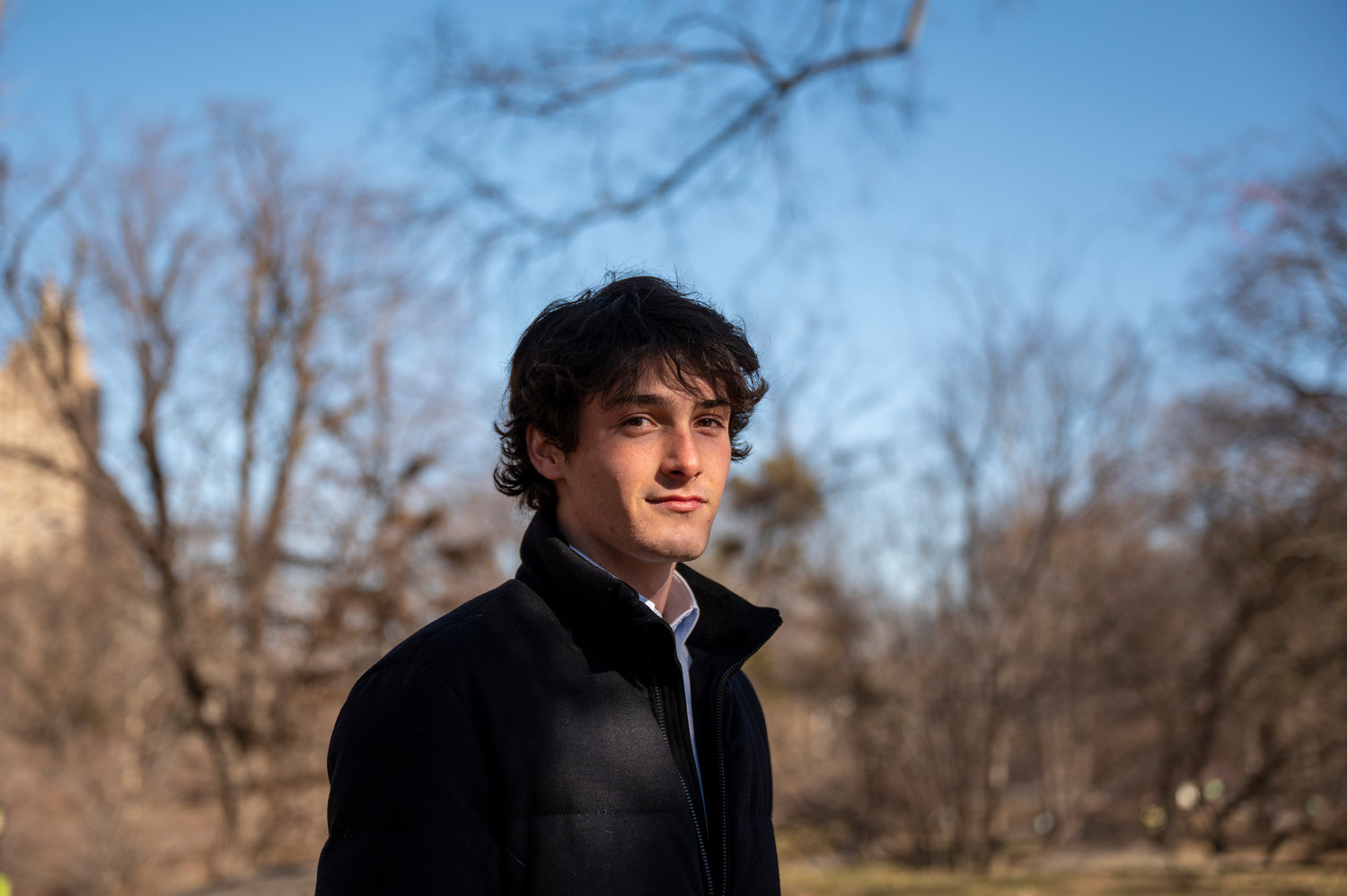Learned lessons send Riverdale Country teen around the world
While many 19-year-olds prepared to start their spring semester of college, Henry Wright was preparing for something much different.
The Riverdale Country School grad was elected to the governing body of Education Cannot Wait — a humanitarian fund established by the United Nations aimed at providing education in emergencies and protracted crises.
But Wright would be the first to tell you Education Cannot Wait is nothing like anyone would expect.
“It’s somewhat different than other humanitarian funds in the sense that it’s not just about ensuring survival,” the teen said. “It’s also about the continuity of education.”
Wright’s election marks one of the first times someone his age was voted into the governing body of a humanitarian fund. It’s a big accomplishment for Wright, who was sitting in a Riverdale Country School classroom less than a year ago.
“Before this, unfortunately, there were no young people serving on (any) groups or participating in the process of determining the future of a fund,” Wright said. “This is a really exciting moment not only for me, but a lot of young activists and people in civil society who’ve been pushing for more diversity and inclusion in this sector.”
Some of Wright’s responsibilities will include leading more than 100 youth-led non-governmental organizations from across Africa, Asia, Europe and the Americas. It’s the most active and diverse constituency in the fund, Wright said. These groups include European student unions, representing more than a million students and local groups in places like Nigeria.
Wright serves alongside business leaders, politicians and other dignitaries, including secretaries of state and education from Europe, the Middle East and Africa.
Most notable members on that list include British prime minister Gordon Brown, as well as Filippo Grandi, the U.N. high commissioner for refugees.
It was his familiarity and intrigue with UNICEF, the U.N.’s high commissioner for refugees, and other humanitarian groups that first led him to want to help those less fortunate around the world.
But it was the electoral process governing Education Cannot Wait’s as well as its youth-filled constituency that attracted Wright to the organization. And yet, this isn’t the first time Wright has sought to help refugees around the world.
When he was 16, Wright raised money as a solo refugee activist, collecting funds from his French class to buy laptops and other educational materials for those who needed it most.
At 17, he was volunteering in a Zaatari refugee camp in Jordan — one of the largest Syrian refugee camps in the world. He was there with his family, in fact, helping refugees bring global awareness to the plight young refugees like them faced.
Wright has created that awareness through a number of activities, like giving speeches at events involving Nobel Peace Prize winner Kailash Satyarthi.
At 15, he traveled with a New York Times European economics correspondent to Berlin to study how Syrian refugees integrated into society there. That trip kept Wright away from home for six months.
But how did Wright convince his family to let him travel across the world at such a young age?
“My parents have always been very supportive of my interests,” Wright said. “They’ve been very understanding of my desire to travel and help however I can.”
The United Nations reports more than 75 million school-aged children have fled war, persecution and climate disaster that are now at risk of losing an opportunity at quality education. That where Education Cannot Wait steps in, managing an $8.5 billion fund the organization says is needed to close that resource gap for students.
The organization was first formed during the World Humanitarian Summit in 2016 by a consortium of international humanitarian and development aid advocates. Supporters hoped to reposition education as a priority on the humanitarian agenda by leading a more inclusive effort to help children facing some of the most extreme adversity around the world.
Not many who know Wright were surprised by his recent election. In fact, one of his teachers — Darius Weil — wouldn’t expect any less.
“While he enjoyed learning about the historical minutiae of topics like the Industrial Revolution and the rise of nationalism,” Weil said, “what he really loved was using history to better understand the divisive, complicated problems that we face in the present.”
Wright was particularly fascinated by how capitalism and colonialism have shaped the modern world, the history teacher added. That really made the then-sophomore drill deeper into the curriculum.
“Henry was definitely a rabble-rouser,” Weil said. “He felt it was important to unsettle the assumptions and opinions of some of his classmates, especially in areas related to racial justice and the economy.”
Weil believes it was Wright’s trip to the Zaatari refugee camp that may have had the biggest impact on the young student’s life so far.
“He was transformed by what he witnessed and experienced there,” the teacher said. “I’m proud of Henry for his work in the domain of refugee rights.”
Indeed, the experience was so transformative, Wright was inspired to start his own online publication at TransnationalPolitics.com.
However, it wasn’t just because of the profound impact he had that he decided to start his own site, but rather his unhappiness over what he wasn’t seeing from other news outlets.
“The media treatment of refugees specifically is so aggressive and unrealistic,” Wright said, “that there had to be some sort of publication in the media atmosphere that tried to humanize and tell the true stories of refugees.”
Even after spending the past few years volunteering and advocating for refugees, Wright still sees himself raising awareness of the crises impacting refugees around the world.
“I feel like I’ve learned so much, not just about refugee crises but about the way systems in power work,” Wright said. “I think I really want to share a lot of the lessons that I’ve learned.”









